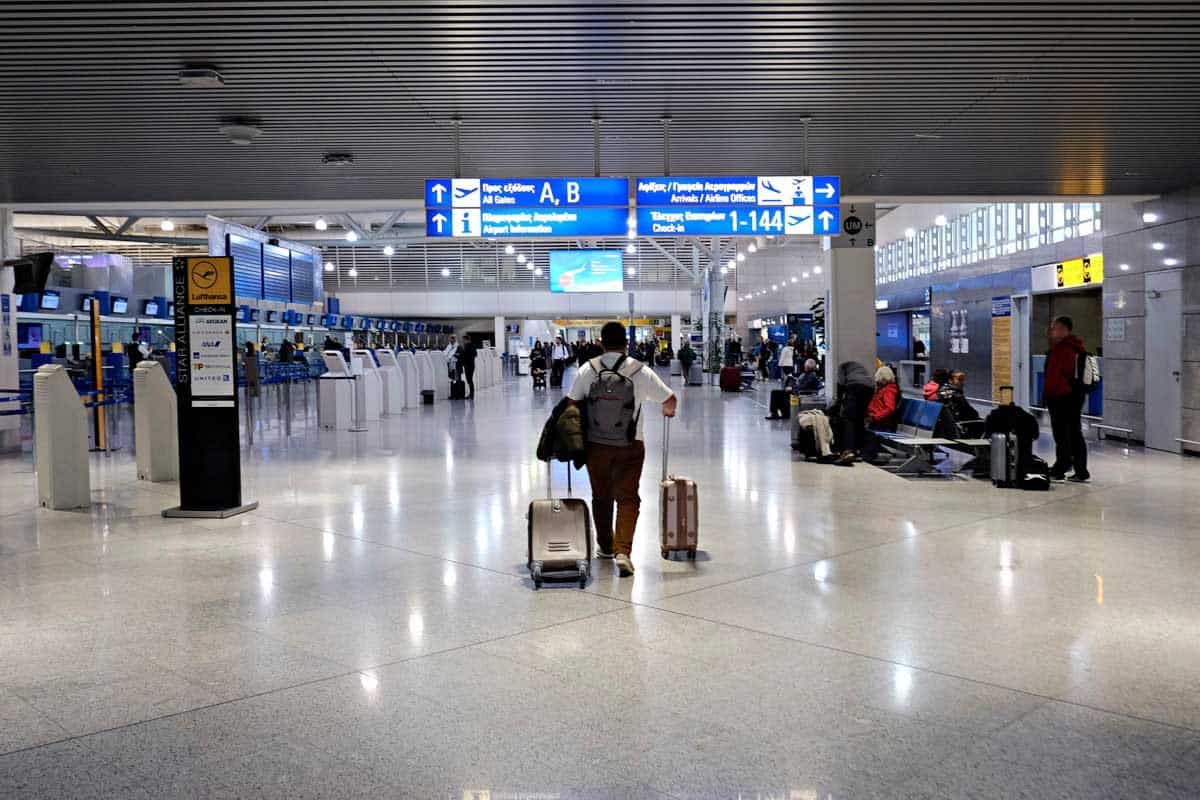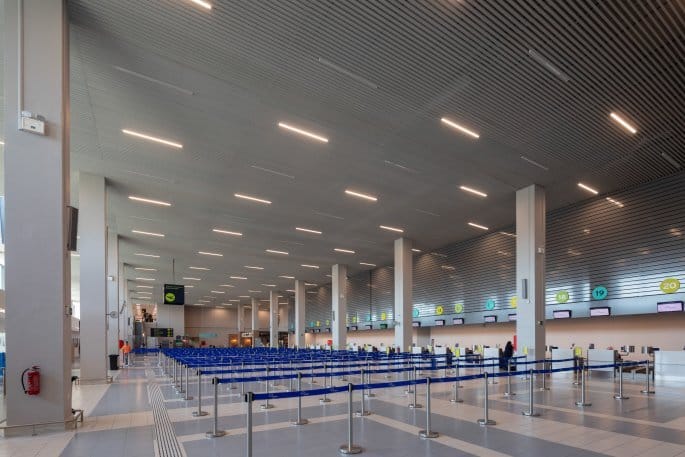A summer of freedom, after two years of restrictions, will be enjoyed by those who travel by air to Europe from today as the obligation to use a mask on EU aircraft and airports due to the COVID-19 pandemic is lifted.
The European Center for Disease Prevention and Control (ECDC) and the European Aviation Safety Agency (EASA) recommend relaxation of sanitary measures and more specifically the use of masks, both at airports and in flight.
In particular, the ECDC and EASA, in a joint statement, are repealing the recommendation for the mandatory use of medical masks at airports and on flights, but stressed that the mask is still one of the best precautions against the transmission of COVID-19.

The new recommendation is valid from today, May 16th.
However, it should be noted that the rules specifically for masks will continue to differ depending on the airline. For example, companies flying to or from a destination where masking on public transport is still required should continue to encourage its use.
It is also emphasised that vulnerable passengers should continue to wear a face mask, regardless of the rules, ideally a FFP2/N95/KN95 mask that offers a higher level of protection than a standard surgical mask.
In addition to the changes to the masks, the recommendations include relaxation of stricter measures for aviation activities, which will help alleviate the burden on the industry, while maintaining appropriate measures.
The updated guidance takes into account the latest developments in the pandemic, “in particular the levels of vaccination and naturally acquired immunity, and the accompanying lifting of restrictions in a growing number of European countries,” the EASA said in a statement.
The move is a big step forward and broadly aligns with public transport rules across Europe, according to EASA Executive Director Patrick Ky.

“For passengers and air crews, this is a big step forward in the normalisation of air travel. Passengers should however behave responsibly and respect the choices of others around them. And a passenger who is coughing and sneezing should strongly consider wearing a face mask, for the reassurance of those seated nearby.”
Meanwhile, the ECDC’s Director Andrea Ammon said that “while risks do remain, we have seen that non-pharmaceutical interventions and vaccines have allowed our lives to begin to return to normal.”
New variants continue to emerge and the pandemic has not been declared officially over, with parts of the world still seeing large Covid outbreaks.
Health officials have urged governments to remain cautious, insisting that a new Covid strain could come along that’s more virulent and dangerous than the last.
“New VOCs [variants of concern] are frequently discovered with varied degrees of immunity escape and severity of symptoms,” the EASA said.
Airport staff, crew members and passengers should be particularly alert to the recommendations and requirements of the national authorities of the state of country they are visiting, it added.
In the first year of the pandemic, before vaccines were available, the vast majority of Covid-19 deaths -- more than 80% -- were among seniors age 65 and older.
In 2021, especially during the Delta surge, the average age of people dying shifted younger. Less than 60% of those who died in September were 65 or older, according to provisional data from the CDC.
But 2022 has looked a lot more like 2020 and the first winter surge; so far this year, about three-quarters of all Covid-19 deaths have been among seniors.
Studies have suggested that the vaccine effectiveness wanes over time. Data from the CDC published in January found that getting boosted was 90% effective at preventing hospitalizations during a period when Omicron was the dominant variant.
In comparison, getting two shots was 57% effective when it had been at least six months past the second shot.
The vast majority of seniors completed their initial series more than a year ago now. And while booster uptake among seniors is better than other age groups, less than two-thirds of seniors have gotten a booster shot.
The CDC now recommends a second booster shot for this age group, too, and uptake is even lower.
CNN's analysis of CDC data from recent months suggests that disparities in risk among vaccinated people who are boosted compared with those who only have their initial series are most prominent among this vulnerable age group.
READ MORE: Greek hotels struggle to fill more than 55,000 job vacancies this summer.


